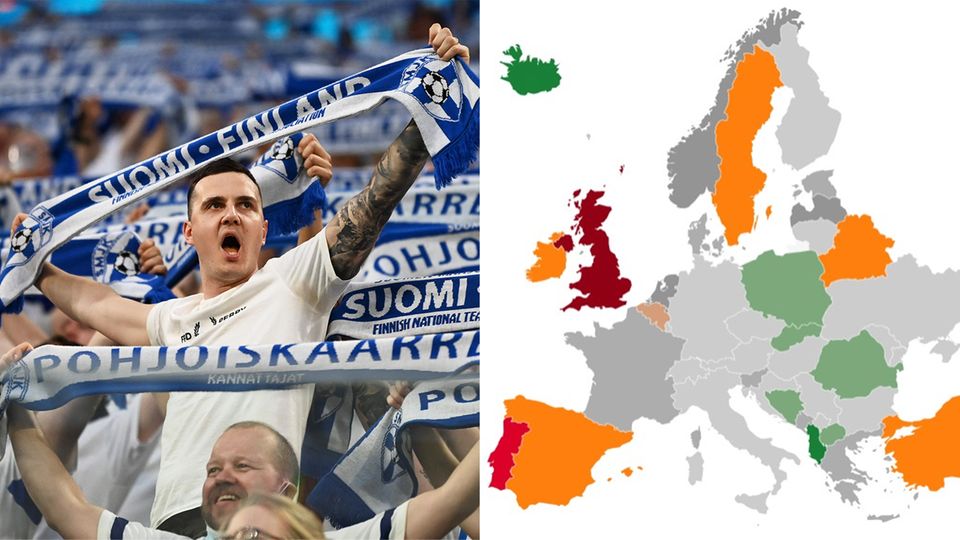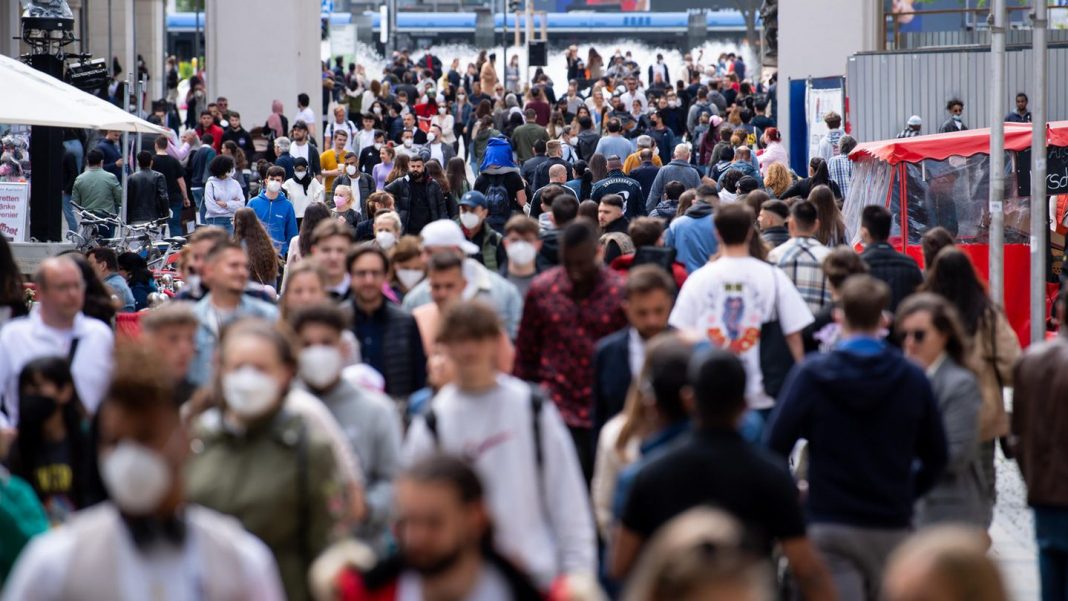The hope for herd immunity is almost as old as the corona pandemic. Among other infectious virus variants such as Delta, however, question marks arise behind it.
With the onset of herd immunity, the pandemic ends – either way, the hopes may look in the minds of many people. However, experts are increasingly making it clear that it is not quite that simple. Some doubt that herd immunity is even achievable with coronavirus. overview.
Herd immunity – what is it anyway?
The term has several meanings. In the corona debate in Germany, it is usually meant that a sufficient number of people have become immune after vaccination or infection in order to greatly slow down the spread of the pathogen. The idea is that the virus then gets less to the still vulnerable people. Such community protection would benefit, for example, people who cannot be vaccinated for medical reasons. However, it is now considered extremely unlikely that the virus can ever be eradicated.
Charité virologist Christian Drosten told the Swiss online magazine” Republik “at the beginning of June:” That was a misunderstanding from the beginning, if you understood it in such a way that herd immunity means: 70 percent will be immune-whether by vaccination or infection – and the remaining 30 percent will no longer have contact with the virus.”
How much immune people do you need for herd immunity?
There is no universal answer. How high the rate must be also differs depending on the disease, with the highly contagious measles about 95 percent are considered a threshold. For Corona, experts initially put the proportion since the spring of 2020 at about two thirds of the population. It was based on the assumption that an infected person infects an average of three people if no measures are in force and no one is immune.
But then came more contagious virus variants: infected with the variant alpha, which is still prevalent in this country, infect more people on average than infected with previous variants. That is why, for example, the President of the Robert Koch Institute (RKI), Lothar Wieler, now speaks of a goal of over 80 percent vaccinated and recovered, in order to be able to largely do without measures and rules and still keep the number of infections per infected (R-value) below 1.
What does the virus variant Delta mean for herd immunity?
The feared spread of the delta variant in Germany could further complicate the achievement of herd immunity, according to Carsten Watzl, Secretary General of the German Society of Immunology. “Delta is even more contagious than the currently prevalent virus variant alpha.”It assumes a threshold of probably around 85 percent.
“So we are getting into areas that are difficult to reach as long as there is no approved vaccine for children under 12 and no general vaccination recommendation for everyone under 18. It may be that herd immunity can only be achieved for individual facilities such as nursing homes, but not for the majority of the population,” said Watzl. Due to the lack of vaccination options, younger pupils also have no community protection at first.
What happens if the necessary threshold is reached?
“Even then there will still be infections, even then there will be outbreaks, but it can be assumed that with immunity of well over 80 percent, severe courses and deaths are largely prevented,” explained an RKI spokeswoman. Lothar Wieler, among others, warned: Anyone who decides against vaccination will sooner or later become infected.
However, according to experts, the great horror and difficult-to-control spread in the sense of waves and lockdown measures is likely to be over in the future with a high vaccination rate. However, the transitions are fluid: As a WHO paper shows, from a vaccination rate of 50 percent, it is expected that up to 40 percent of infections and 60 to 70 percent of hospital and death can be reduced.
According to the immunologist Watzl, achieving a vaccination rate of 60 to 70 percent in the population would already be a great help in combating the pandemic. “The hope is that it will only lead to smaller outbreaks that no longer require lockdown measures.”People who cannot be vaccinated, who do not want to be immunized or for whom vaccination does not respond so well for reasons such as age or disease, would then be most likely to become infected. “The good news is: everyone who is fully vaccinated is also protected from delta.”
Why are there question marks behind the concept at Corona?
The threshold calculations are rather theoretical in nature and serve as a rough guide. The term comes from veterinary medicine, behind it are considerations for the protection of animal populations. However, people do not live in closed groups – on the contrary, they meet each other, are internationally mobile.
Immune people are also not completely evenly distributed among the population. This means that the virus can continue to cause outbreaks in remaining unprotected areas.
Add to this: immunity in Sars-CoV-2 is not something lifelong. Protection diminishes over time, both for those who have recovered and for those who have been vaccinated. About the duration, because of the novelty of the virus and vaccines, nothing can be said for sure.

In any case, no vaccination protects 100 percent. As the RKI pointed out, vaccinated people also have a residual risk of becoming infected and infecting others. In addition, there are groups of patients for whom vaccinations work less well, such as immunocompromised patients. And there are concerns among many experts that over the summer, vaccination fatigue sets in people who could actually be immunized.
Could a new mutant nullify the vaccination progress?
So far, no variants are known that render the existing vaccines useless – but a weakening of the protection is observed. We are already working on revaccinations, which also cover variants better. A cat and mouse game with ever new, greatly changed variants is currently not expected: So far, the same changes often seem to be developing internationally. “So a mutant who suddenly makes a serious illness again in the majority of vaccinated, I can not imagine, “Drosten said in the”Republic” interview.
Nevertheless, vaccination remains important:” The higher the vaccination rate, the slower the virus circulates – and the fewer mutations it can form, “said the president of the German Society of Immunology, Christine Falk, the newspaper”Die Welt”.
Could the pandemic remain a permanent state?
No, it doesn’t look like that. Even if virologist Drosten is often perceived as a warning in public: He has long emphasized that the virus will probably behave like the well-known cold coronaviruses in the long term. In the next two to four years, however, transitional states are still to be expected – the virus will use vaccine gaps, he recently made clear.


